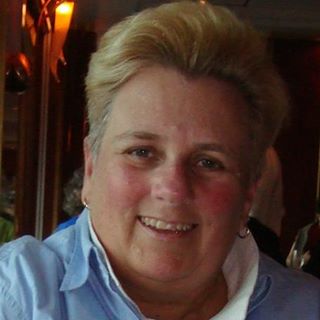Just over two years ago, I was preparing to attend my first FACJJ (Federal Advisory Committee on Juvenile Justice) meeting in Washington, D.C., enthusiastic to be working side-by-side with proven professionals in juvenile justice, individuals throughout the country who had voluntarily adjusted their personal and professional lives to better the lives of the youth we serve.
Our first meeting took place in mid-September and included all FACJJ members whose terms were set to expire on Sept. 30, 2016. An overlap structure was developed to continue the work of each committee, allowing new FACJJ members to hit the ground running with little wasted time, resulting in a smooth efficient transition.

Cheryl Massaro
The meetings and conference calls that followed were productive and the work committees were doing was promising. Committee members were addressing issues including crossover youth, SOGIE (sexual orientation, gender identification or expression), human trafficking, DMC (disproportionate minority contact), homelessness and everything in between. Many FACJJ committees were actively engaged with legislatures, working with staff from the OJJDP (Office of Juvenile Justice and Delinquency Prevention) to make a positive difference in the juvenile justice system.
FACJJ committee work continued throughout the presidential election, working directly with OJJDP staff, and progressed for well more than a year, until the new OJJDP Administrator Caren Harp was named by the Trump administration. At that point, all communication between FACJJ officers and members with OJJDP staff ceased. All FACJJ members expected that there would be changes with a new administrator on board, similar to past transitions of power, but no one expected the actual outcome.
On Aug. 29, all FACJJ members received an email from Elizabeth Wolfe, an OJJDP staff member, on behalf of Administrator Harp. It thanked us for our service to the FACJJ and said that the group would be restructured, and that all our terms had expired and would not be renewed. Actually, my entire class of 2016’s first term expired on Sept. 30, 2018, and was up for a second-term renewal that was obviously not going to be extended by OJJDP.
All the work in progress by the current FACJJ was lost. Even the OJJDP staff member familiar with the interests of the current FACJJ has been replaced. Personal and professional time invested in the FACJJ mission, by each and every member, has been ignored and totally disregarded. The overlap membership transition process established by previous administrators has been decimated, and time and money invested in the work in progress has been lost.
Continuity, progress at risk
Retaining a portion of current FACJJ members was purposely designed to help maintain the continuity of the group and committee work, so every year when members rolled off a group of committee members remained to continue work in progress. By releasing all FACJJ members, this continuity of process was destroyed and all work in progress ended, with new appointees being forced to start from scratch.
The good news was that each current FACJJ member was invited to reapply, an invitation extended to all current SAG members through their newly appointed OJJDP liaison. The OJJDP liason the FACJJ had been working with for years has been reassigned and is no longer associated with the group.
The reapplication process established by OJJDP was not publicly advertised anywhere, and applicants were only given one week to apply. Under those application guidelines, it is easy to stack the deck, enabling the selection of new FACJJ members to be a group of like-minded individuals instead of a cross-section of members representing our diverse population.
I personally have decided not to apply, for I fear that by the time this new FACJJ group is reorganized, identified and engaged it will be time for the United States to change administrations, and then a new OJJDP administrator will be appointed, and the group will be right back where it started, with absolutely nothing being accomplished.
I fully believe our current political structure is broken. Until that time when cool heads can prevail and individuals can look past their political ideology and designations, and do what is right for our youth, the federal state of juvenile justice is in turmoil. The one saving grace we have is the federally mandated state advisory groups working in conjunction with The Coalition for Juvenile Justice. By working together with these groups, which get OJJDP funding, we still can make a difference and have a positive impact on the youth we serve.
Cheryl Massaro has been employed as a special administrator for the Flagler County (Fla.) Schools, and serves as director of the Flagler County Youth Center and George Washington Carver Community Center. She chairs the Disproportionate Minority Contact Committee of the Florida Department of Juvenile Justice State Advisory Group and is currently helping to develop the new Florida Youth Justice Commission.

